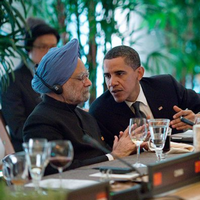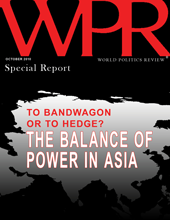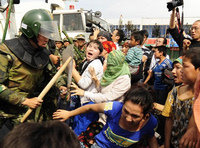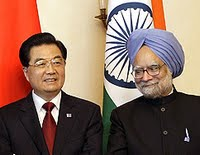
In advance of President Barack Obama’s visit to India next month, the administration is sending signals about great and wondrous changes ahead in the Indo-American relationship. But in reading Lalit K. Jha’s dispatch from Washington, a term I have come to dread in foreign policy rhetoric made its predictable appearance: Obama’s visit is supposed to herald the establishment of a “true strategic partnership.” “Strategic partnership” entered the U.S. diplomatic lexicon as a way to find a halfway house between those countries that are formal American allies — especially those for whom this status is a matter of treaty and Congressional […]








